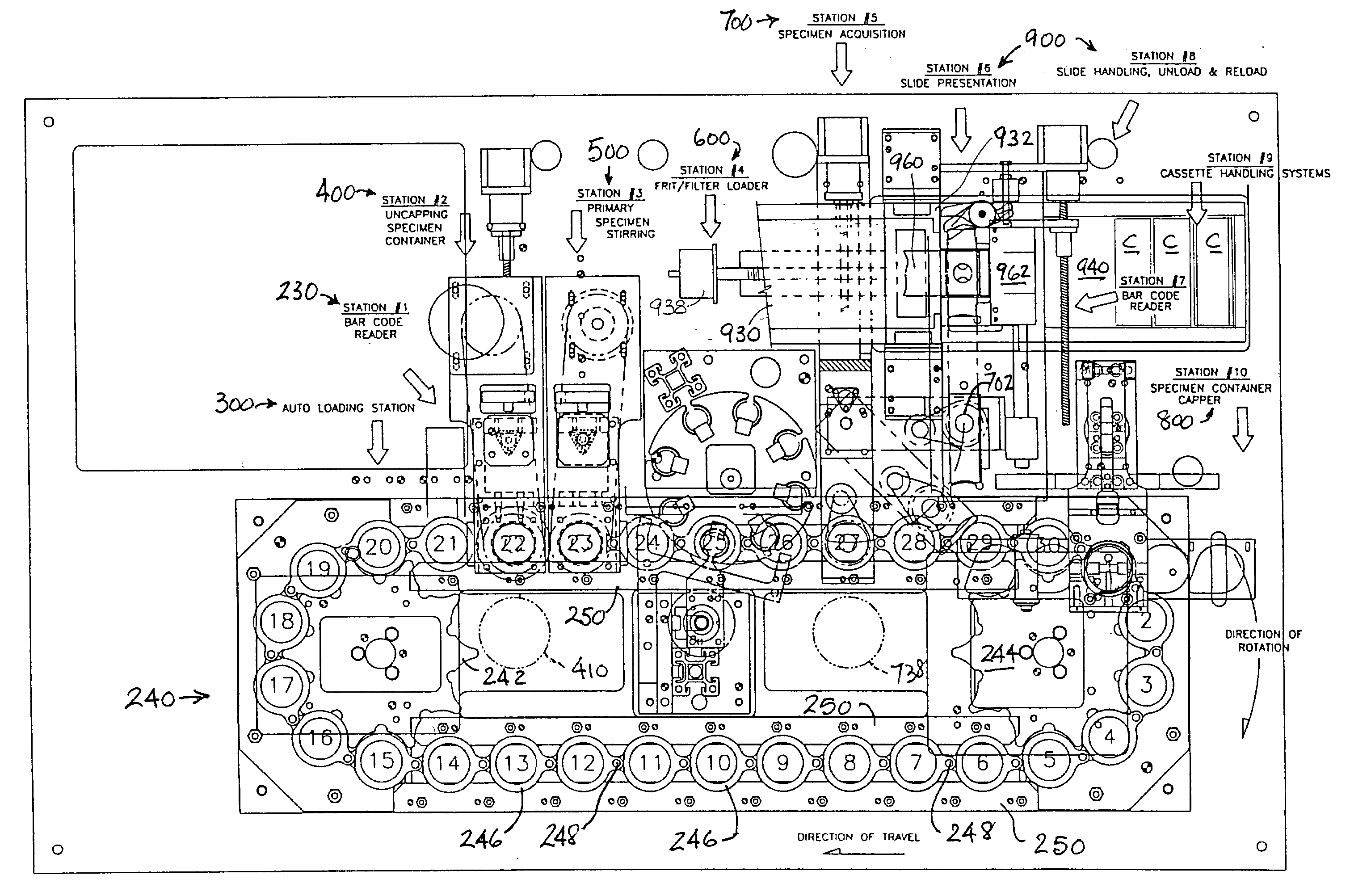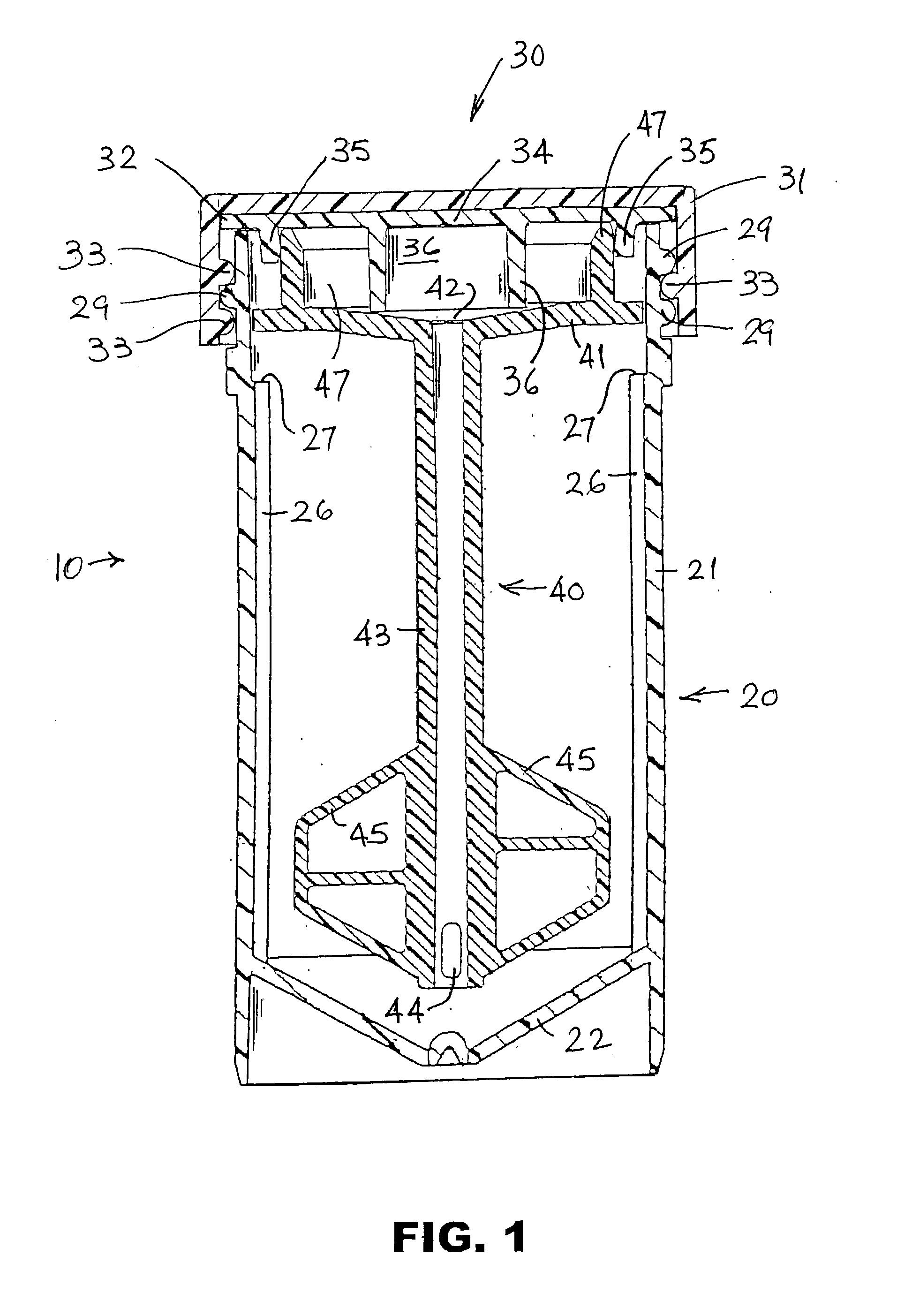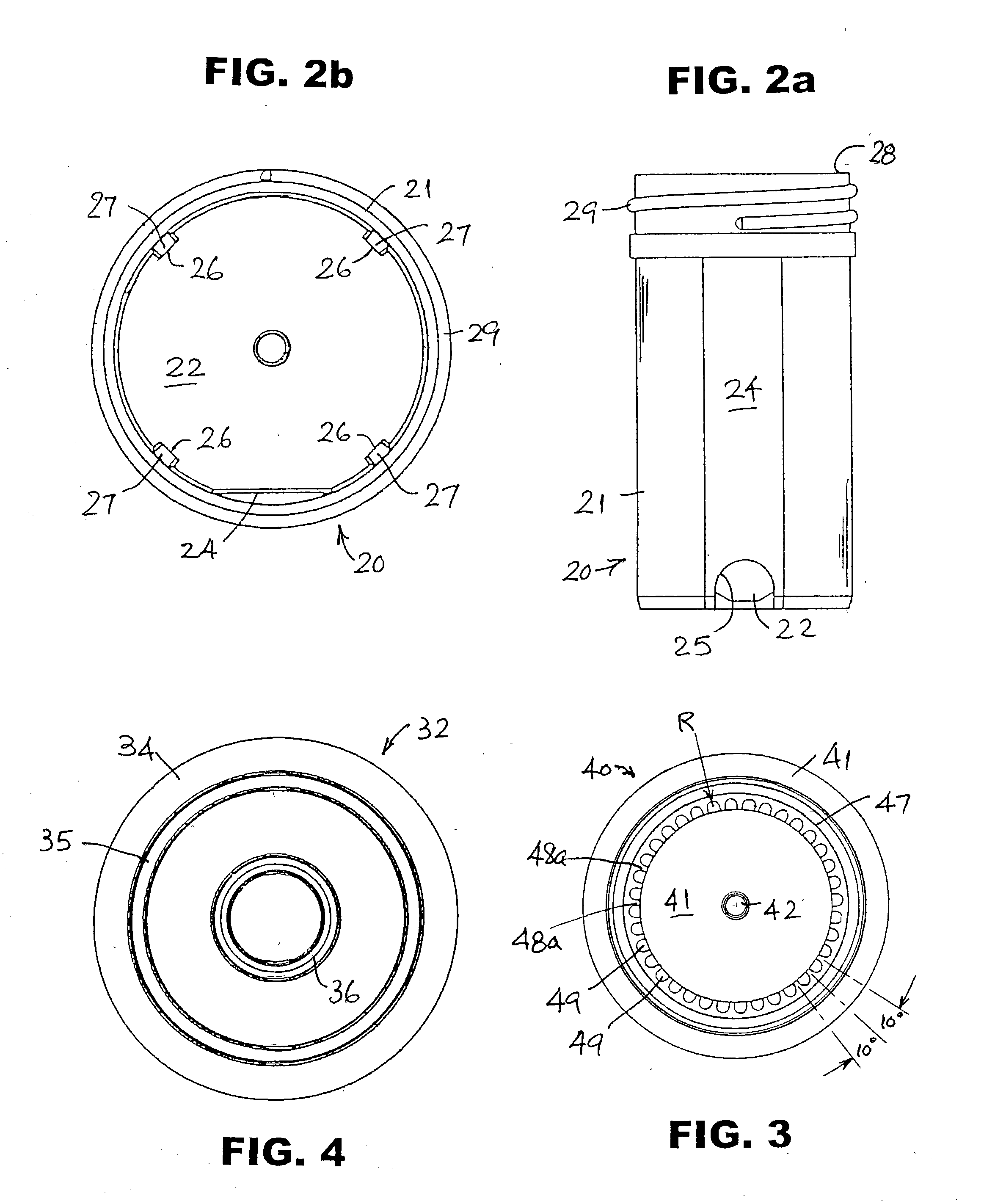Automated system and method for processing multiple liquid-based specimens
a liquid-based specimen and automatic technology, applied in the field of specimen vials, can solve the problems of insufficient consistency, reliability, speed and automation of automated equipment developed for processing liquid-based specimens, and add time, material and labor costs to the processing required, etc., to meet current and projected needs in cancer screening and other cytology-based medical, analytical, screening and diagnostic procedures, and achieve simple and inexpensive releasable coupling, avoid contamination, and simple cover
- Summary
- Abstract
- Description
- Claims
- Application Information
AI Technical Summary
Benefits of technology
Problems solved by technology
Method used
Image
Examples
Embodiment Construction
[0092] A full description of this vial-based specimen handling and processing system must begin with the vial itself, which consists of a container, a cover and a processing assembly (stirrer) in the vial.
[0093] Referring to FIGS. 1, 2a and 2b, the vial 10 comprises a container 20, a cover 30 and a processing assembly 40. Processing assembly 40 is designed to carry out several functions, among them mixing, and for this preferred rotary embodiment will be referred to as a stirrer for the sake of convenience. Container 20 preferably is molded of a translucent plastic, preferably polypropylene, and has a substantially cylindrical wall 21, surrounding its longitudinal axis, joined to a conical bottom wall 22. Possible alternative plastics include ABS and polycyclohexylenedimethylene terephthalate, glycol (commercially available from Eastman Kodak Co. under the name EASTAR.RTM. DN004). A small portion 24 of wall 21 preferably is flat, the outer surface of the flat portion ad...
PUM
| Property | Measurement | Unit |
|---|---|---|
| angle | aaaaa | aaaaa |
| height | aaaaa | aaaaa |
| inner diameter | aaaaa | aaaaa |
Abstract
Description
Claims
Application Information
 Login to View More
Login to View More - R&D
- Intellectual Property
- Life Sciences
- Materials
- Tech Scout
- Unparalleled Data Quality
- Higher Quality Content
- 60% Fewer Hallucinations
Browse by: Latest US Patents, China's latest patents, Technical Efficacy Thesaurus, Application Domain, Technology Topic, Popular Technical Reports.
© 2025 PatSnap. All rights reserved.Legal|Privacy policy|Modern Slavery Act Transparency Statement|Sitemap|About US| Contact US: help@patsnap.com



